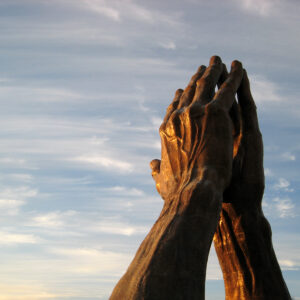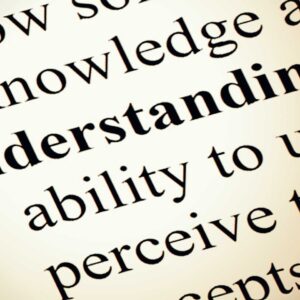There is a real fear among the some faithful that questioning the veracity of the church or the Book of Mormon is a sure way to lose your soul to the devil. I think this mindset is at odds with the more central, key teaching of the LDS church, which is even taught as the driver behind the foundation of the church. Joseph received his first vision after being struck by the promise of James:
James 1:5
If any of you lack wisdom, let him ask of God, that giveth to all men liberally, and upbraideth not; and it shall be given him.
The Book of Mormon similarly teaches:
Moroni 10:4–5
And when ye shall receive these things, I would exhort you that ye would ask God, the Eternal Father, in the name of Christ, if these things are not true; and if ye shall ask with a sincere heart, with real intent, having faith in Christ, he will manifest the truth of it unto you, by the power of the Holy Ghost. And by the power of the Holy Ghost ye may know the truth of all things.
When Oliver Cowdery wanted to be able to translate, the Lord through Joseph Smith, Jr said:
D&C 9:8
But, behold, I say unto you, that you must study it out in your mind; then you must ask me if it be right, and if it is right I will cause that your bosom shall burn within you; therefore, you shall feel that it is right.
In our church, we believe in personal revelation. We believe that we can and should question anything and everything, and God will give us the wisdom we lack. We clearly teach that in order to receive that answer, we must first do the legwork — we “must study it out in [our] mind” and then bring our conclusion to God for confirmation. I see no problem, in fact I think it should be expected for us to do the same with any doubt or question we have, especially concerning God and his church.
Interestingly, throughout time church leaders have proclaimed that because the LDS church is the true church of God, that the church should withstand any investigation or examination into the truth claims. Here some of the supporting quotes (my emphasis added):
“The nature of the message in the Book of Mormon is such that, if true, no one can possibly be saved and reject it, if false, no one can possibly be saved and receive it. Therefore, every soul in all the world is equally interested in ascertaining its truth or falsity. In a matter of such infinite importance, no person should rest satisfied with the conjectures or opinions of others. He should use every exertion himself to become acquainted with the nature of the message; he should carefully examine the evidences of which it is offered to the world; he should, with all patience and perseverance, seek to acquire a certain knowledge whether it be of God or not. If, after a rigid examination, it be found an imposition, it should be extensively published to the world as such. The evidence and arguments upon which the imposture was detected should be clearly and logically stated, that those who have been sincerely, yet unfortunately, deceived may perceive the nature of the deception, and be reclaimed, and that those who continue to publish the delusion may be exposed and silenced.” Orson Pratt; 1850, Introduction to Divine Authenticity of the Book of Mormon.
“If faith will not bear to be investigated; if its preachers and professors are afraid to have it examined, their foundation must be very weak.” — George A. Smith; 1871, Journal of Discourses, Vol. 14, pg. 216
“Mormonism must stand or fall on the story of Joseph Smith. He was either a Prophet of God, divinely called, properly appointed and commissioned or he was one of the biggest frauds this world has ever seen. There is no middle ground. If Joseph was a deceiver, who willfully attempted to mislead people, then he should be exposed, his claims should be refuted, and his doctrines shown to be false...” (Prophet Joseph Fielding Smith, Doctrines of Salvation (Salt Lake City: Bookcraft, 1954), vol. 1 pp 188–189)
“If we have the truth, it cannot be harmed by investigation. If we have not the truth, it ought to be harmed.” — Apostle J. Reuben Clark, D. Michael Quinn, J. Reuben Clark: The Church Years. Provo, Utah: Brigham Young University Press, 1983, p. 24.
“Well, we have nothing to hide. Our history is an open book. They may find what they are looking for, but the fact is the history of the church is clear and open and leads to faith and strength and virtues.” — Prophet Gordon B. Hinckley, Dec. 25, 2005 interview with The Associated Press
“Well, it’s either true or false. If it’s false, we’re engaged in a great fraud. If it’s true, it’s the most important thing in the world. Now, that’s the whole picture. It is either right or wrong, true or false, fraudulent or true. And that’s exactly where we stand, with a conviction in our hearts that it is true: that Joseph went into the Grove; that he saw the Father and the Son; that he talked with them; that Moroni came; that the Book of Mormon was translated from the plates; that the priesthood was restored by those who held it anciently. That’s our claim. That’s where we stand, and that’s where we fall, if we fall. But we don’t. We just stand secure in that faith.” — Prophet Gordon B. Hinckley, Interview “The Mormons”; PBS Documentary, April 2007
“This book [The Book of Mormon] is entitled to the most thorough and impartial examination. Not only does the Book of Mormon merit such consideration, its claims even demand the same.” — Apostle James E. Talmage, Articles of Faith, pg. 273
So does a “most thorough and impartial examination” mean we should read the Book of Mormon and see if it makes us feel good? That is anything but thorough or impartial. Still, if we do read it and pray and feel good about the book, does that mean that it is from God?




Hello Wes. I have read the Book of Mormon many times during my life. For the most part, I have read it in the way almost all mormons read it. As a ritual. I hope I don’t offend anyone. But from my lived experience, that descriptions feels correct to me. During the past 5 years I have studied the Book of Mormon 8 times cover to cover. Each time I have studied it I have studied it with a different question, in order to truly read it for the first time with a true intent to study as opposed to spend 20 minutes a day in a ritual. The most recent time I studied it, I did so to understand what exactly is the gospel of salvation taught in the Book of Mormon. This link is a quick summary of what it teaches: http://i.imgur.com/dndZclj.jpg Their were two fascinating findings to me from this study. 1) What the Book of Mormon (which contains the fullness of the gospel) does not teach. and 2) That the description of what happens after the resurrection and final judgment are inconsistent with what is taught in sunday school today. So my question for you, how do you reconcile this disconnect? Or have you even noticed this disconnect? Why does the Book of Mormon teach that everyone goes to hell, subject to the Devil, never to return after the judgement, except only those who accepted Christ in this life and endured to the end? This group also includes children who died and… Read more »
James, I’ve been thinking about your comment, and how to respond. I very much appreciate the question, and I am very glad you have called attention to it. It has been a few years for me now, since I read the Book of Mormon with the intensity and purpose you describe. I do keenly remember the disconnect you’ve described. It bothered me sometimes more, sometimes less, over the years. When I was active and believing, I attributed the disconnect to very different causes than I do now, so we will start there. As a faithful, believing Mormon, I understood that, while the people of the Book of Mormon had the fullness of the Gospel: the Melchizedek priesthood, temple ordinances, etc., the text of the Book of Mormon was only a fraction of their records (see Jacob 3:13 and 3 Nephi 26:6), so we end up with an abbreviated Plan of Salvation. Since I started from the assumption that I “knew” the Book of Mormon was “true”, it was easy for me to conclude that any such disconnects were not actually disconnects, just simplifications. At this point, I take a different view. It is very clear that at the time Joseph was translating the Book of Mormon, he was much more of a Protestant/Methodist world view. Joseph in the Book of Mormon repeatedly, as your linked image points out, equates Jesus to being the very same “God the Father”, which the LDS church no longer accepts except when reading those Book of Mormon verses,… Read more »
In my orthodox days I pretty much either ignored this doctrinal issue or just shelved it. If I did think about it, I assumed I was somehow missing something and it all needed to make sense to those who were smarter than me. Because clearly I knew it was true and I also knew what the plan of salvation looked like. So if there were any issues, they were mine. But after serious study of being willing to just read the Book of Mormon for what it says, as opposed to what I thought it said, it was very clear. The plan of redemption/salvation taught in the book of mormon teaches a literal hell after the resurrection and judgment. It is repeatedly and clearly taught. The kicker for me was to read D&C 19 where God admits to having allowed this false doctrine to be taught. He said he did to work upon the hearts of the people. But at the time D&C 19 was received God was still referring to this (that hell really does end and is not eternal) as a mystery and Martin Harris should not share this doctrine with others. It was meat and at that time only milk was allowed. I was left with a challenging question. If God had allowed a false doctrine to be taught for 1000 years in the Book of Mormon, how could I ever be certain that what was being taught today was now the “real” and “true” doctrine? Clearly you can tell that… Read more »